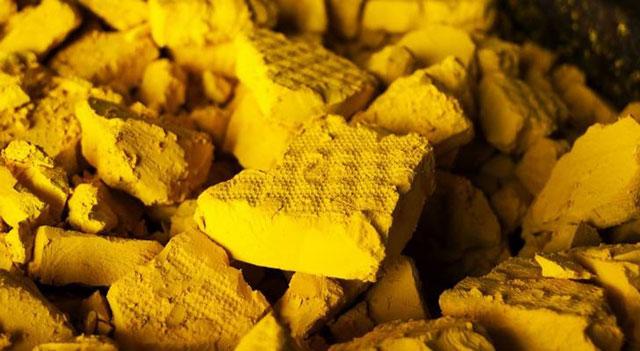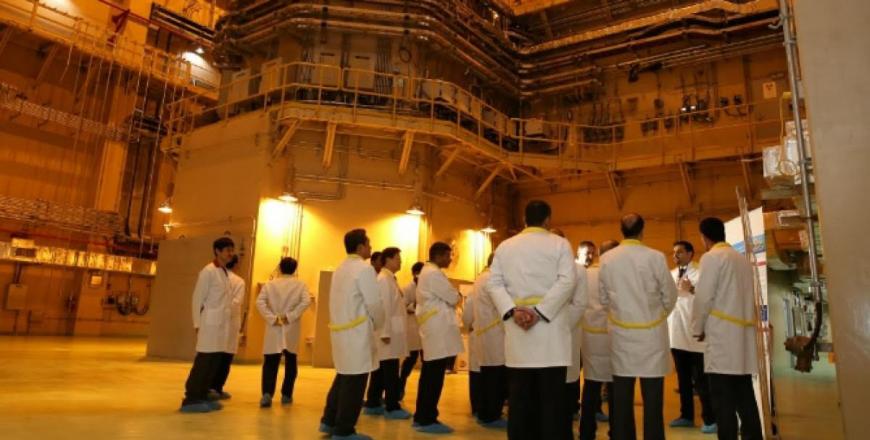You are here
Central region holds estimated 41,000 tonnes of yellowcake - JAEC
By JT - Jul 16,2024 - Last updated at Jul 16,2024

The Jordan Atomic Energy Commission says the central region is estimated to have about 41,000 tonnes of yellowcake uranium (Petra photo)
AMMAN — Experts estimate that the central region holds about 41,000 tonnes of yellowcake uranium, according to Nuclear Reactors Officer at the Jordan Atomic Energy Commission (JAEC) Khaled Khasawneh.
Addressing a special lecture organised by the Ministry of Energy and Mineral Resources in cooperation with the JAEC, which focused on the benefits of nuclear power reactors in addressing Jordan's energy and water challenges, Khasawneh noted that these uranium reserves could serve as a primary fuel source for nuclear power reactors in Jordan.
The Jordanian Uranium Mining Company manages the uranium project in the central region and is working to explore and develop optimal processing methods for uranium ore, he noted.
According to a ministry statement released on Tuesday, Khasawneh highlighted JAEC's plans to use small modular reactors (SMRs) and integrate nuclear power into the national energy mix.
He emphasised that nuclear power is one of the world's best low-carbon energy sources and can be used in a variety of sectors, noting that technical assessments and economic feasibility studies are underway for several SMR designs, as well as detailed feasibility studies for the use of nuclear power in water desalination and pumping in Jordan.
He also highlighted ongoing JAEC studies to integrate SMRs into the National Carrier Project, as well as described how nuclear power reactors could reduce energy production costs compared with conventional energy sources, which place additional financial burdens on governments.
Khasawneh pointed out that several SMRs are designed for multiple uses beyond electricity generation, such as seawater desalination and hydrogen production.
He noted that SMRs require less cooling water than large conventional nuclear reactors, offering greater flexibility in site selection away from water sources.
Khasawneh also discussed the key role of the Jordan Research and Training Reactor (JRTR), located at the Jordan University of Science and Technology, in training new generations of nuclear researchers, scientists, and engineers, as well as used to produce medical and industrial radioactive isotopes, notably Iodine-131, which is distributed to hospitals, medical centres, and nuclear medicine clinics throughout the Kingdom.
Iodine-131 is used in the diagnosis and treatment of cancer by approved pharmaceutical standards and specifications.
Related Articles
AMMAN — The Jordan Atomic Energy Commission (JAEC) and Rolls-Royce on Thursday signed a memorandum of understanding to conduct a technical f
AMMAN — Nuclear energy has the potential to strengthen Jordan’s energy security, with fission reactions generating harvestable thermal energ
AMMAN — The Jordan Atomic Energy Commission (JAEC) and the Russian State Atomic Energy Corporation Rosatom have signed a memorandum of under













